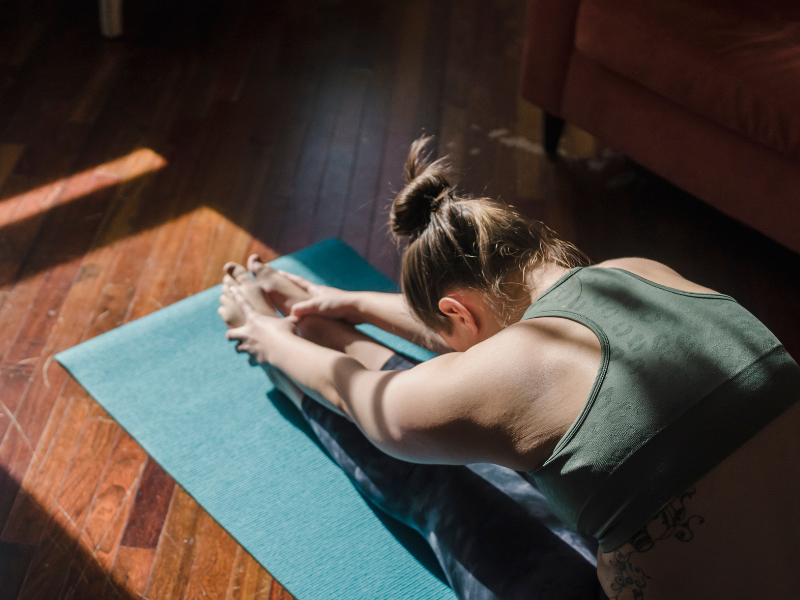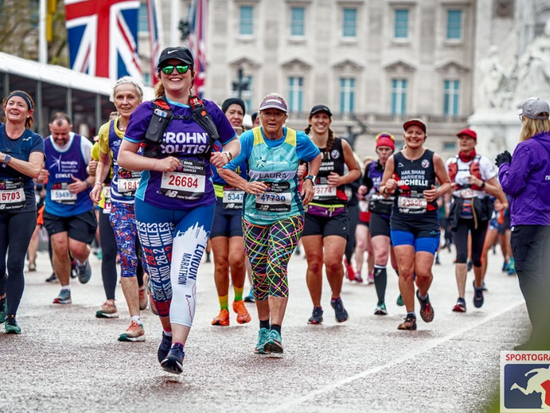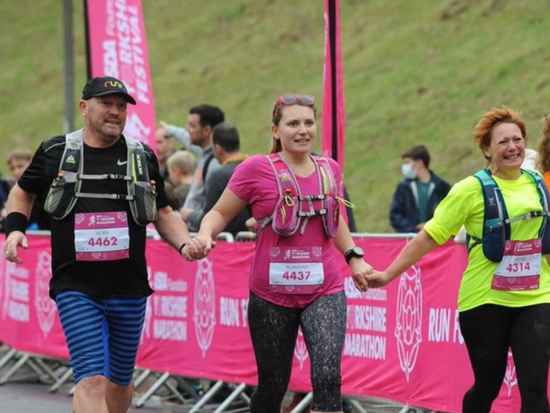Stress & the Skin
Psychodermatology focusses on the connection between the mind and the skin.

It is now understood that psychological factors such as stress, anxiety and depression can cause and/or have an effect on many skin disorders - whilst equally, having a skin disorder can affect your well-being and mental health.
Psychodermatology is an emerging field which combines principles from dermatology and psychology to understand how emotional and psychological factors can influence various skin conditions. This interdisciplinary approach recognizes that the skin, being the largest organ in the body, is not only influenced by external factors such as environmental stressors, but also by internal factors such as stress, emotions, and psychological well-being.
We posted some polls on our Stories last weekend, and 122 of you said that you've experienced skin conditions that were caused by issues such as stress, anxiety and depression.
It seems clear that skin issues are very closely linked to psychological issues – but at Pretty Athletic, we think it is something that both individuals and skincare brands should talk about more - and most importantly, focus on what we can do to help ourselves.
My story
Like many others, I experienced this during covid/lockdown. In early 2021, for the first time in my life I got sore eczema patches on my neck and on my forearms. I also experienced hair loss whereby I developed a big bald patch on the back of my head.
For the eczema I saw my GP and got given some steroid cream which I used for one week and then religiously moisturised my arms with a normal (non-steroid/non prescription) moisturiser twice a day for the next few months. For the hair loss, our dermatologist suggested it was alopecia areata (which in non-medical terms just seems to be random hair loss, to which there is no ‘treatment’ or cream)

On doing more research, it became apparent to me that both were caused by inflammation and stress – which made total sense as it was covid/lockdown and I was looking after both kids (a two year old who needed constant entertaining and a 5 year old who was in reception but obviously being homeschooled - and of course it turns out I am a rubbish teacher!) whilst also trying to keep my small business going.
It’s easy to get used to a huge amount of stress and anxiety and not realise it’s a problem – until something just stops you in your tracks. For me that was the hair loss. At that moment I realised that my skin and hair were reacting to the stress and I needed to do something.
Inflammation
So what's going on? Part of the story is cortisol - it's a hormone produced by the body in response to stress. It is a vital hormone involved in various functions, including metabolism. However, excessive or prolonged levels of cortisol can negatively affect the skin.
Elevated cortisol levels can trigger inflammation in the body, leading to an increased immune response. On the skin, this can manifest as redness, irritation, and aggravation of existing skin conditions such as acne, eczema, or psoriasis.
Cortisol can also compromise the skin's barrier function, which is responsible for retaining moisture and protecting against external irritants. An impaired skin barrier can result in dryness, increased sensitivity, and a higher likelihood of experiencing allergic reactions or irritations.
What can you do?

Mindfulness is a practice that focusses on being fully engaged in the present rather than dwelling on the past or worrying about the future. It involves focusing on the breath, bodily sensations, or other sensory experiences to focus one's attention to the present. Research suggests that regular mindfulness practice can lead to reduced stress and improved emotional well-being.
Exercise can be a powerful tool for reducing stress and promoting overall well-being. It triggers the release of endorphins (those "feel-good" hormones!) which can help alleviate stress and improve mood. Plus, focussing on your run or lifting weights (or whatever exercise you choose) temporarily diverts attention away from stress-inducing thoughts, allowing for a much-needed mental break.

Journaling is the practice of writing down thoughts, feelings, and experiences. Writing about stressful events or challenging emotions can provide a safe and non-judgmental space to express and release pent-up feelings, allowing you to process and externalize emotions, offering a sense of relief and release. Engaging in regular journaling can have a calming and soothing effect. It helps to unload thoughts and worries onto paper, reducing the mental burden associated with stress.
Journaling can incorporate gratitude practices, where you write about things you are grateful for or positive experiences. Focusing on positive aspects of life can shift attention away from stressors and foster a more optimistic mindset. It helps cultivate a sense of appreciation and resilience. There are a number of studies which show a link between gratitude and an improved sense of wellbeing.

A hot bath can be a very soothing and relaxing experience. The warm water and the soothing environment can ease muscle tension, and can also trigger a relaxation response in the body, reducing the production of stress hormones and promoting a calmer state of mind. It offers a tranquil environment to help calm the mind and allows you to disconnect.
Taking steps to ensure you have a good night’s sleep can make a huge difference, as sleep plays a vital role in regulating stress hormones such as cortisol. When you consistently get good sleep, your body's cortisol levels are better balanced, reducing the negative impact of stress on your physical and mental health. Quality sleep enhances your ability to cope with stress. It improves your resilience, making you more equipped to handle and bounce back from stressful situations.
Things you can do to promote a consistent sleep schedule include creating a conducive sleep environment, practicing relaxation techniques before bed, and adopting a bedtime routine that promotes relaxation and winding down.
Being in nature has a calming effect on the mind and body. “Forest bathing” is a Japanese practice that involves immersing oneself in a forest or natural environment to promote well-being and reduce stress. Spending time in nature can offer respite from the fact-paced, technologically driven world in which we live. It allows you to disconnect and recharge.

Whether it's a walk in the park, a hike in the mountains, or simply sitting under a tree, taking the time to get outside and connect with nature can have profound effects on stress reduction and overall mental and emotional health.
Ultimately you need to do what works for you. Whatever it is that makes YOU feel better. That helps you find that moment of calm
The key is to make time for these in your schedule – making time for you should be a priority.
For me, the first step was realising I was hugely stressed and that I needed to actively not let myself get so anxious. I think there is a big mindset piece here. Recognising that your stress levels are a problem. It’s so easy to get used to a huge amount of stress and anxiety and not realise it is not normal – until something just stops you in your tracks.
For me that was the hair loss. At that moment I realised that things had gotten really bad and I needed to do something. Recognising that I was getting too stressed and worried – and then telling myself that I had to stop it. And from that flowed the more practical things such as baths in the evening, mindfulness, and exercise.
***
Have you experienced skin or scalp issues cause by psychological issues such as stress, anxiety or depression? What have you found that really helps? We'd love to hear from you x



